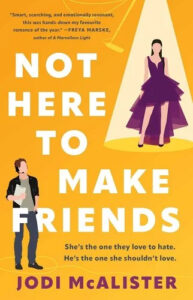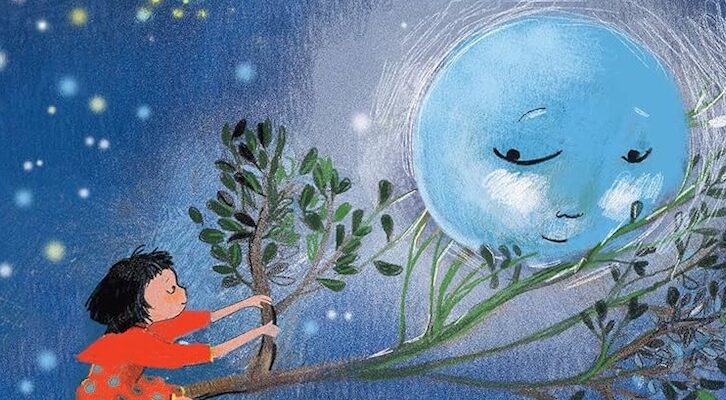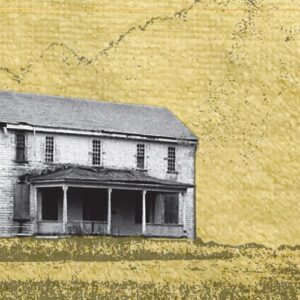The easiest type of reality TV contestant it is to be is a forgotten one.
This sounds a little counterintuitive, when we consider the promise of social media fame that franchises like The Bachelor have historically provided, but if we look at it as a numbers game, this is absolutely true. If thirty contestants enter the mansion on that very first night, we might find ourselves with a passing knowledge of (generously) a dozen. Some will linger in our memories for a few years—maybe they’ll go on to something like Bachelor in Paradise and have a memorable arc there, which will prolong this—but the vast majority will fade away, never really to be thought of again.
There are a few exceptions to this rule. There are the winners, of course, who have a vested interest in performing Being In Love with the lead that has chosen them. They’re the romantic protagonists, and if they can keep us invested in their love story, they can cash in.
There are the notable jilted suitors—the contestants who made it almost to or even all the way to the end, only to get their hearts broken. We’re also invested in them as romantic protagonists, which is why so many people in this group find themselves as the new Bachelors or Bachelorettes: we stay invested in their narratives because we want to see them recover from their heartache, get back on the horse, and find true love after all.
But then there are my favourite kinds of contestants, the ones who—in my opinion, anyway—echo the longest and the loudest in Bachelor history: the villains.
All good romance narratives are founded in conflict. “Happy love has no history,” famous cultural theorist Denis de Rougemont claimed in 1945—and personally, I’d put the emphasis on the story part. If we told a tale of two people meeting, liking each other, falling in love, and then ending up together and they were perfectly happy the whole time, then it might be very pleasant for both of them, but it wouldn’t be especially interesting for the audience—even if this conflict-less love story took place in an environment as spectacular and unreal as The Bachelor.
Romantic protagonists need something to overcome if their happy ending is really going to feel earned—or, as prospective villain Lily tells reality TV producer Murray in my forthcoming romantic comedy Not Here To Make Friends, set on a season of a show called Marry Me, Juliet which very closely resembles The Bachelor: “You don’t just need romance. You need conflict. You need drama. You need something to make the story go—and nothing does that like a really good villain.”
Some of the most notorious villains in Bachelor history actually had startlingly little screentime, compared to the length of the shadows they cast. Bentley Williams, for instance, who simultaneously flattered Season 7 Bachelorette Ashley Hebert to her face while telling the cameras how unattractive he found her, is remembered as one of the all-time most heinous villains, but actually quit the show in the third episode. He was, however, extremely narratively and symbolically important. Ashley’s arc revolved around a deep-seated insecurity that none of the contestants would like her—but when Bentley tried to re-enter the contestant pool a few episodes later, she told him in no uncertain terms to go home. Her obstacle was overcome, telling us, as the audience, that she was now ready to really find love.
Perhaps the most interesting villains, though, are the ones who make it deep into a season. Courtney Robertson, for instance, was the winner of Season 16 of The Bachelor, with Bachelor Ben Flajnik’s final choice clearly portrayed as a decision between a sweet, good, fairytale princess (Lindzi Cox clearly received what we might call a “wifey” edit) and a wicked witch. This led to a fascinatingly ambiguous ending—could a romance between a Prince Charming and a villain work out?—but also made it clear just how blurred the lines between “villain” and “romantic protagonist” actually are.
Two of the show’s most popular catchphrases illustrate this neatly. A romantic protagonist must be “here for the right reasons” (also, coincidentally, the name of another romantic comedy by me). That is, their primary goal can’t be fame or any other fringe benefit that being on the show might bring them: they are there solely with the goal of finding love with the lead.
A villain, however—like Lily in my book, or Courtney Robertson, whose autobiography has a similar title—is “not here to make friends”. They are uninterested in peaceful coexistence with the other contestants: rather, their sole focus is on their relationship with the lead.
…see some overlap?
Perhaps this is why some of the most compelling stories the Bachelor franchise has ever told are villain redemption arcs. For example, over the course of four seasons, Nick Viall moved from villain (he was very much not here to make friends in the two seasons of The Bachelorette he appeared on, placing his sole focus on his ultimately doomed romances with Bachelorettes Andi Dorfman and Kaitlyn Bristowe respectively), to provider of sensible-if-blunt romantic advice (he broke off his romance with Jen Saviano in the final episode of his season of Bachelor in Paradise, but some of the advice he gave contestants like Carly Waddell and Amanda Stanton proved to be extremely good, especially in retrospect) to becoming the Bachelor himself in Season 21. His engagement to winner Vanessa Grimaldi didn’t last, but his position as one of the most respected elders of Bachelor Nation (and continued provider of sensible-if-blunt romantic advice via his podcast The Viall Files) has stood the test of time.
This is the kind of arc that Lily envisions for herself in Not Here To Make Friends. “After this show, the world is going to be my oyster,” she tells fellow contestant Cece, before outlining a somewhat terrifying five-year plan featuring a cycle of redemption romances and tragic breakups, all calculated to grow a brand and build a social media following (and burn her real life down along the way, for reasons she’d really rather people—especially her producer Murray—wouldn’t ask about).
Villains are often so interesting because they’re clever. This is certainly the case with Lily, who is quick and witty as well as being very strategic.
Not all villains know what they’re doing—some are created in post-production, the recipients of the “villain edit” (fascinatingly discussed by Alisha Aitken-Radburn in her recent memoir of the same name about her experiences on The Bachelor Australia). Some genuinely seem like terrible people (can we ever forget Bachelor-turned-villain Juan Pablo Galavis telling Clare Crawley that he “loved f***ing her” but that he didn’t really know her?).
The most entertaining (and best!) villains, though, are usually the ones who, like Lily, know they’re a villain, and are actively playing a character. Think of someone like Corinne Olympios, who very deliberately played up being a spoiled brat, never missing a chance to mention that she still had a nanny despite being twenty-four years old and once famously napping through a rose ceremony and defending her actions by saying that Michael Jordan and Abraham Lincoln took naps. Corinne was the epitome of love-to-hate, driving much of the drama of her season by finding exactly which buttons to press to cause maximum chaos. Plus, she did it while throwing out some of the franchise’s most memorable one-liners: “my heart is gold, but my vagine is platinum” will probably go down in Bachelor history books.
All this said: it’s the villain’s fatal flaws that really make them fascinating—those moments when the façade cracks, and you can see the human beneath the performance. A hurt and heartbroken villain-era Nick asking Andi “if you didn’t love me, then why did you make love with me?” was such a bad move that the show brought Andi back in Nick’s season of The Bachelor specifically so he could apologize to her for it, but it also became one of the most talked-about moments on the show ever, without which he might never have become the lead at all.
And without giving away any spoilers—beneath the quippy, ruthless façade of Lily in Not Here To Make Friends, there’s also some very real emotions.
It just might be her producer Murray, rather than the series lead, who’ll bring them out of her.
***





















